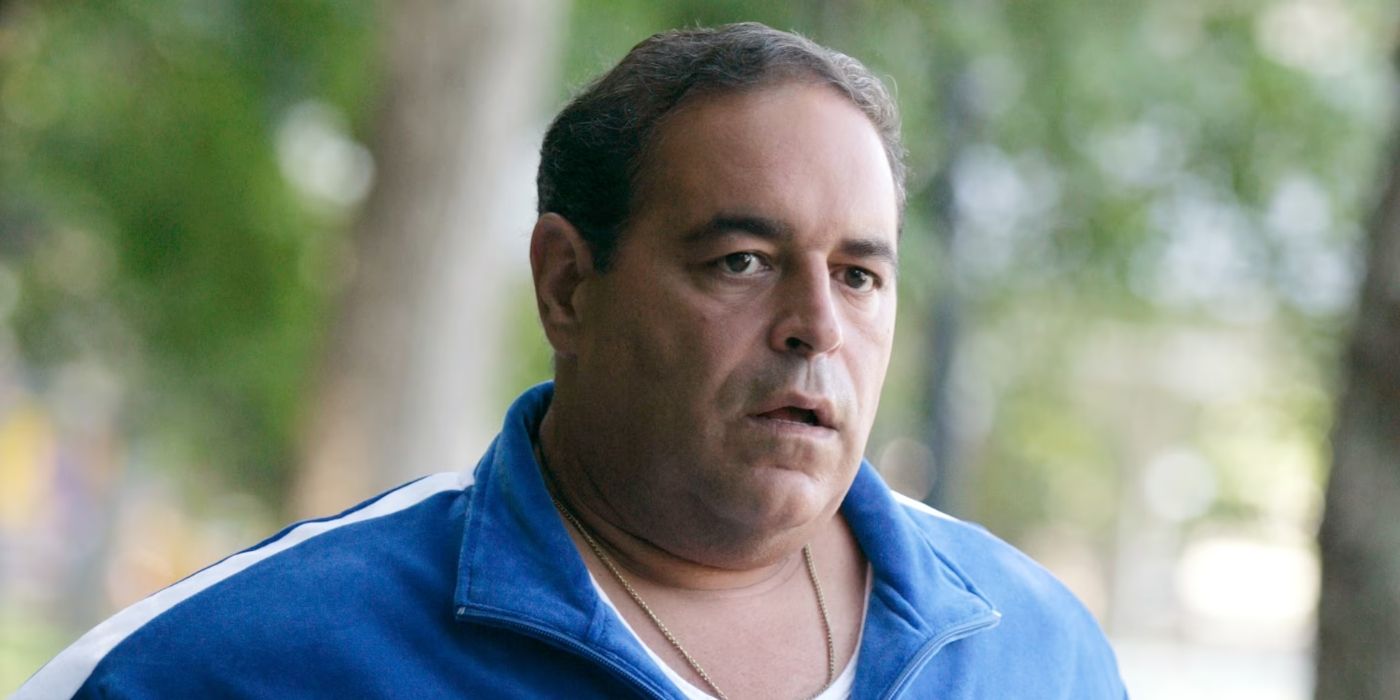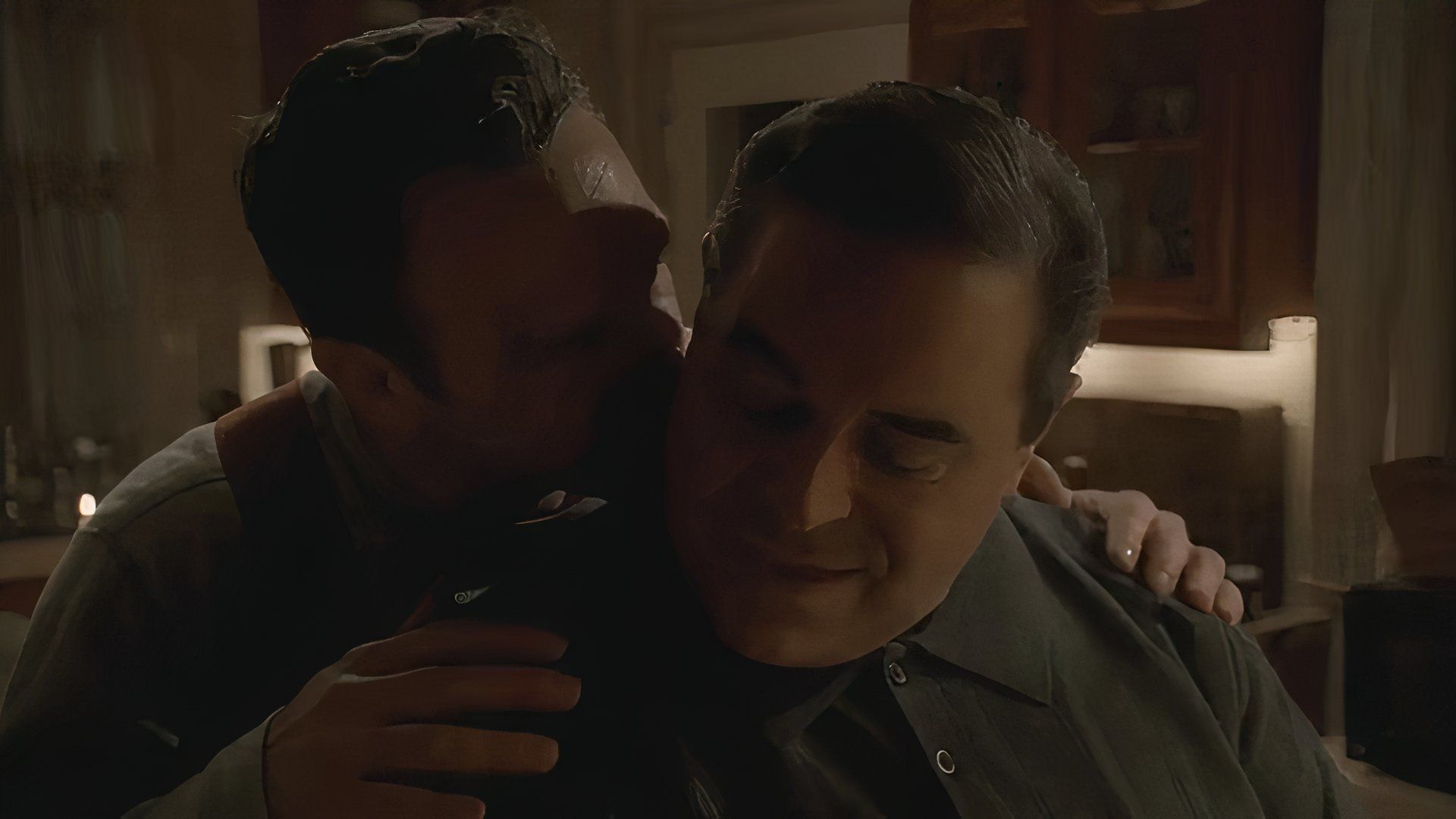
In a refreshingly innovative manner, “The Sopranos” frequently introduced characters as if they were already familiar faces, and occasionally promoted secondary figures to significant roles. A notable instance of this occurred late in the series when Tony’s (James Gandolfini) captain, Vito Spatafore (Joseph R. Gannascoli), transitioned from a recurring character to one of the show’s primary focal points during Season 6. After being exposed as gay, he decided to abandon his life in the mob.
Discussing the role of Vito in Season 6, we notice that it significantly escalates the tension between Tony’s New Jersey gang and the New York-based Lupertazzi family, particularly Phil Leotardo (Frank Vincent). On a narrative level, Vito’s storyline adds to the growing conflict. However, the emphasis placed on his sexuality and short-lived romance with Jim “Johnny Cakes” Witowski (John Costelloe) raises some doubts about the series’ broader intentions for Vito’s character, thematically speaking. Let’s delve into this topic.
Vito’s New Hampshire Hideout

At the start of Season 6, Vito is found enjoying himself at a gay bar by some mob associates who were there to collect. He tries to dismiss it as a joke, but they don’t believe him. The news about his activities soon spreads among the group. Concerned about potential repercussions, Vito makes a sudden exit from his family in the dead of night and leaves town, eventually reaching a small New Hampshire village when his car breaks down. It appears that luck might be on Vito’s side, as he chooses to stay in this new location and eventually forms a relationship with Jim, who runs a local diner and is also a volunteer firefighter.
The Sopranos portrayed the relationship between Vito and Jim with a level of empathy that was relatively uncommon at the time for same-sex couples on television, yet it didn’t seem like the show intended to make any significant statement about progression in its depiction of Vito. Instead, his departure from the series allowed for some of the most brutal homophobic remarks ever seen within the show.
It is not suggesting that incorporating homophobia in storytelling, especially within a traditionally rigid setting like the mafia world, is inherently incorrect. However, portraying Tony and the gang as wholeheartedly accepting Vito’s sexuality might have seemed unrealistic. In other words, The Sopranos never shied away from delving into the unsavory aspects of its characters’ beliefs towards various groups, further illustrating the moral decay within them, despite some viewers viewing characters like Tony and Paulie as odd role models. Vito’s actions along with the reactions of the other gangsters make it evident that the series wasn’t primarily aiming for positive representation of the LGBTQ+ community on television.
Inescapable Cycles in ‘The Sopranos’

(The following contains spoilers for The Sopranos Season 6)
As a cinema enthusiast, I’d rephrase it like this: In the end, I, Vito, discover that tranquil living and a peaceful existence aren’t in my cards, not even with a loving and understanding partner like Jim by my side. Temporarily dabbling (and failing) as a handyman, I find myself drawn back to Jersey, attempting to resume where I left off, despite the potential perils. The allure of the mafia life – its power, respect, and material wealth – is too potent for me to resist forever.
For some time, Tony ponders about welcoming Vito back into their circle, leaning towards a tolerant attitude during therapy discussions. Interestingly, Tony is more aggrieved by Vito’s abandonment of their money-making ventures than his sexual orientation. Ultimately, the choice is taken away from Tony when Phil and his group violently attack Vito, resulting in his death.
Vito’s storyline in Season 6 highlights some persistent themes of the show: the relentless cycles of violence and the struggle for people to make the necessary changes. Despite finding a peaceful life with his partner in a tranquil New Hampshire town, Vito chose to revert back to his old mob lifestyle, leading to his tragic end. His decisions continue to impact his family even after his death, as his son, Vito Jr., portrayed by Frank Borrelli, lashes out against constant bullying.
Ultimately, the show “The Sopranos” fits into the well-known pattern known as “bury your gays,” a remnant from the Hays Code era that only allowed depictions of gay characters if they faced punishment, often resulting in their deaths. However, it’s hard to determine whether this was the best or worst choice for the show. Vito’s character serves as evidence of the series’ pessimistic view on life, suggesting that genuine transformation is seldom achievable. Livia Soprano (Nancy Marchand) might have summed it up best when she told her grandson, “It’s all a big waste.
Read More
- 50 Goal Sound ID Codes for Blue Lock Rivals
- 50 Ankle Break & Score Sound ID Codes for Basketball Zero
- Complete Steal A Brainrot Beginner’s Guide
- Quarantine Zone: The Last Check Beginner’s Guide
- Enshrouded Hemotoxin Crisis: How to Disable the Curse and Save Your Sanity!
- Lucky Offense Tier List & Reroll Guide
- Mirren Star Legends Tier List [Global Release] (May 2025)
- Every House Available In Tainted Grail: The Fall Of Avalon
- Ultimate Myth Idle RPG Tier List & Reroll Guide
- Lady Gaga Does the Viral ‘Wednesday’ Dance, Performs ‘Abracadabra’ and ‘Zombieboy’ at Netflix’s Tudum
2025-05-18 23:03